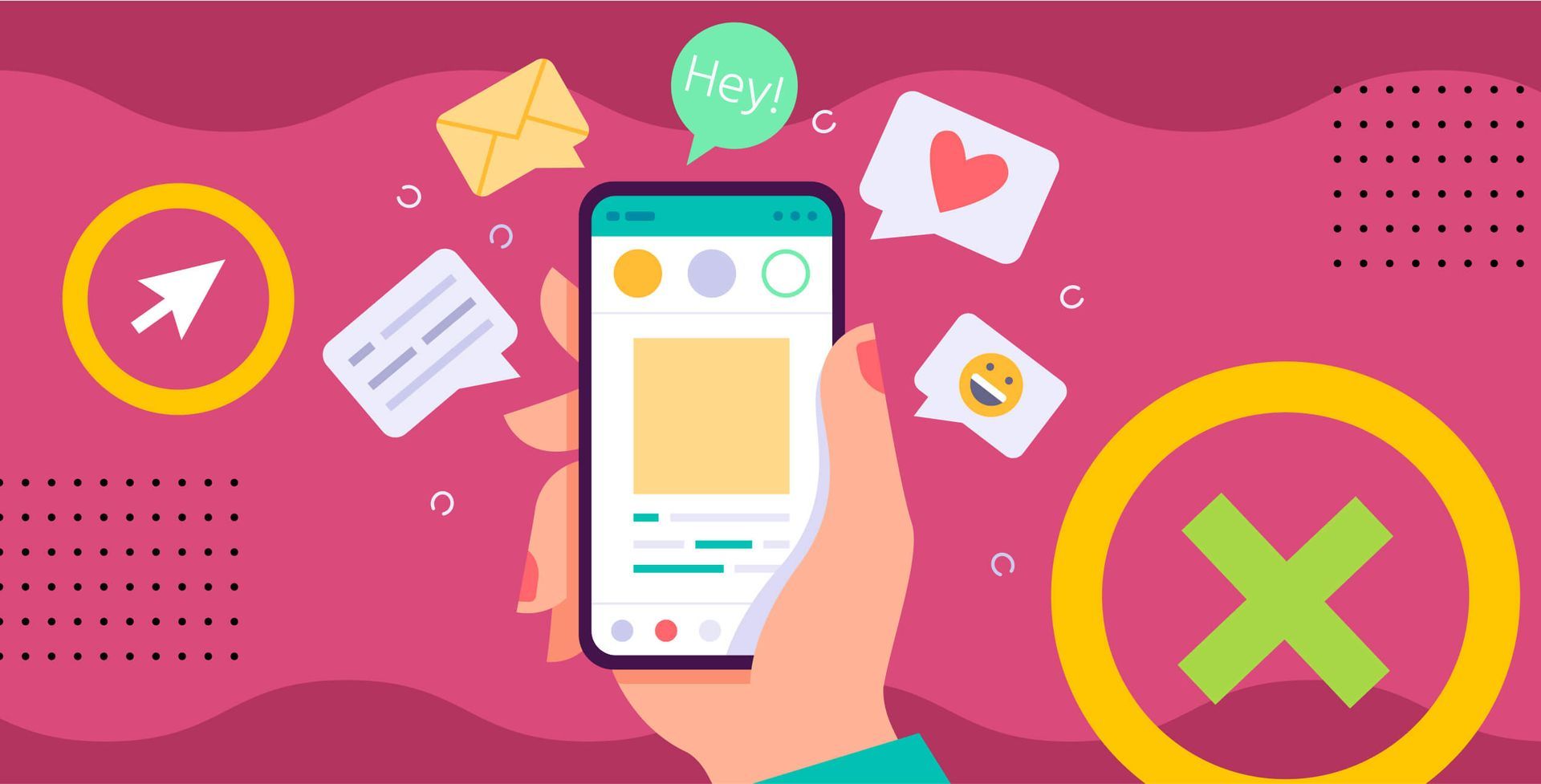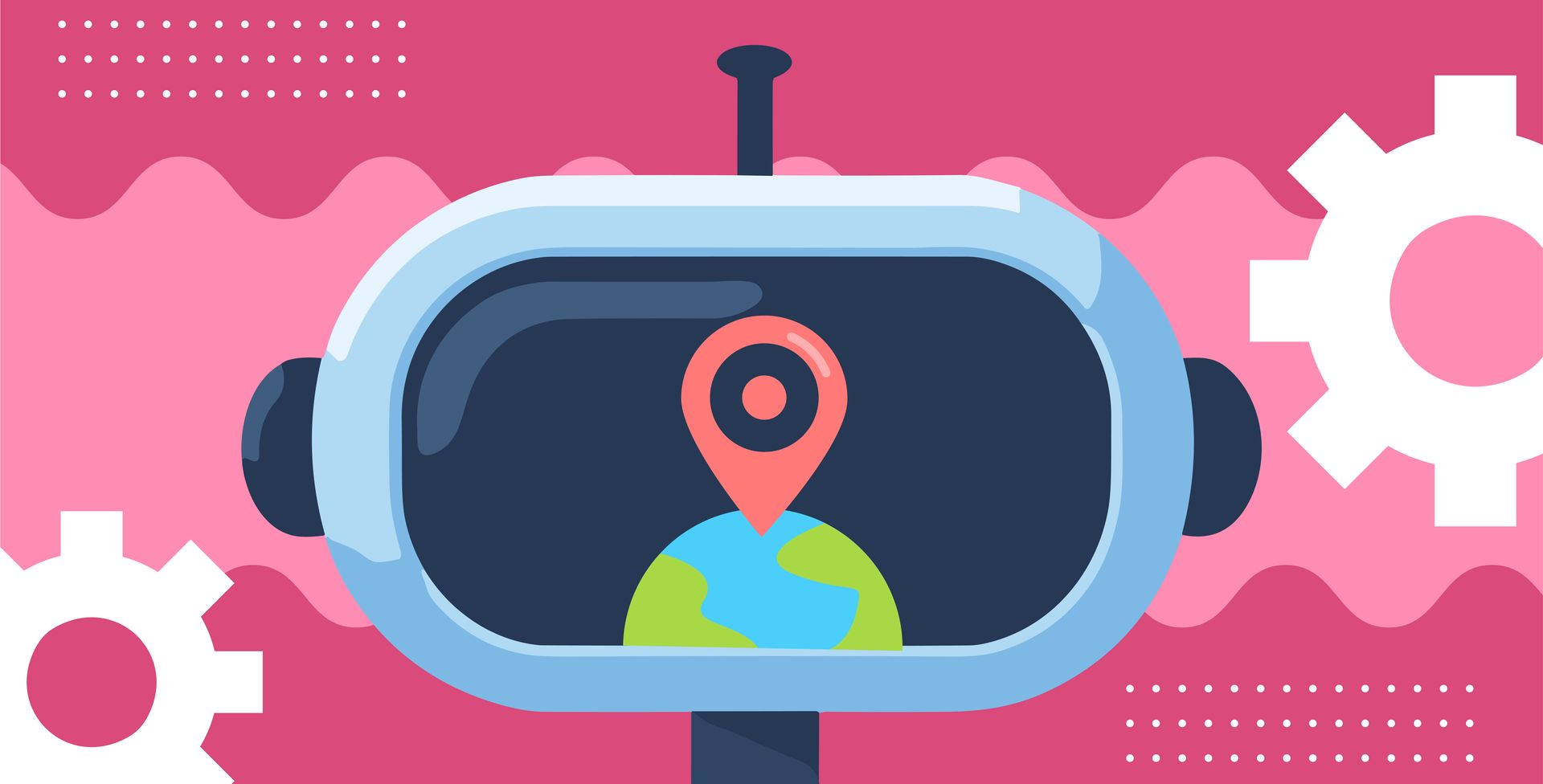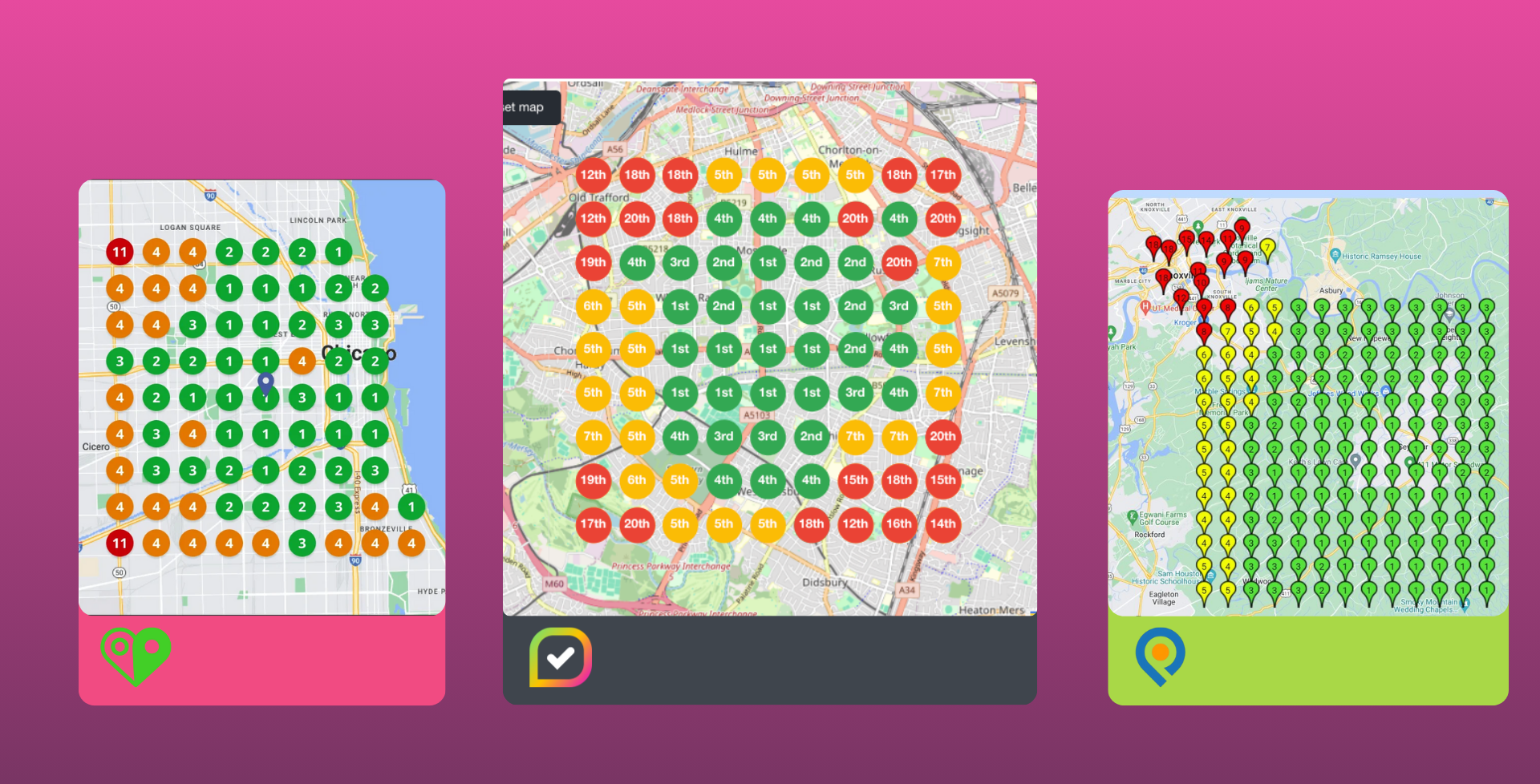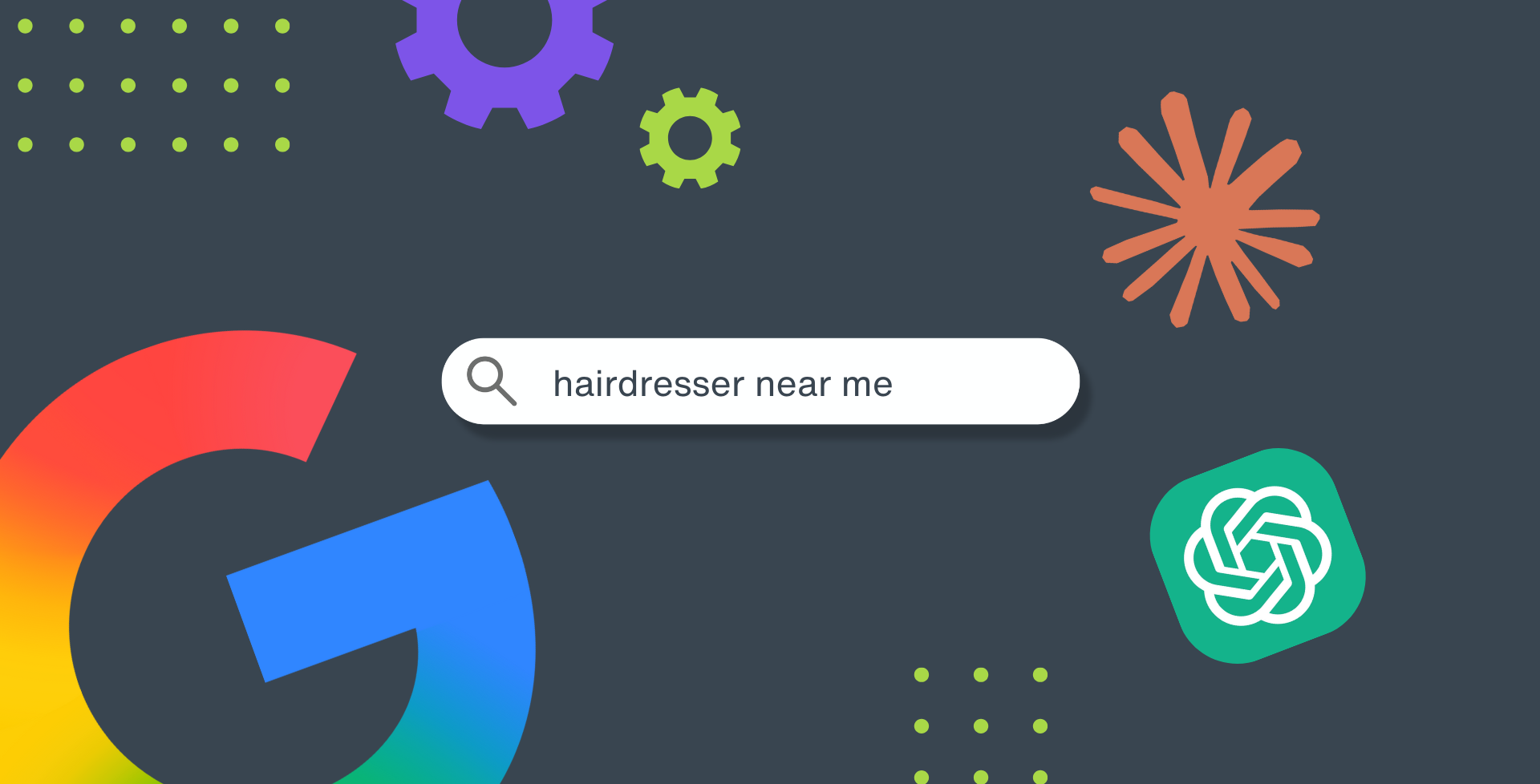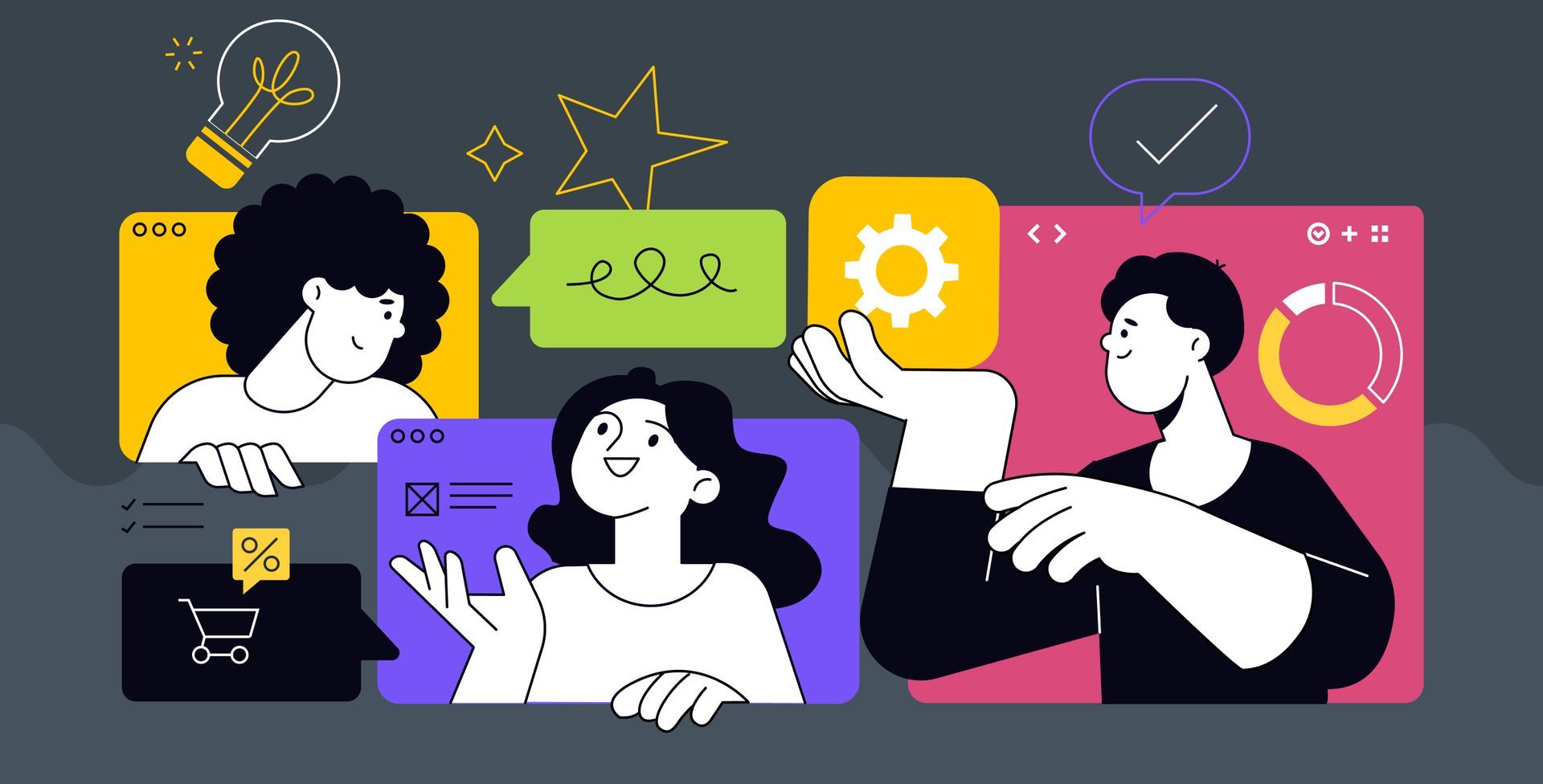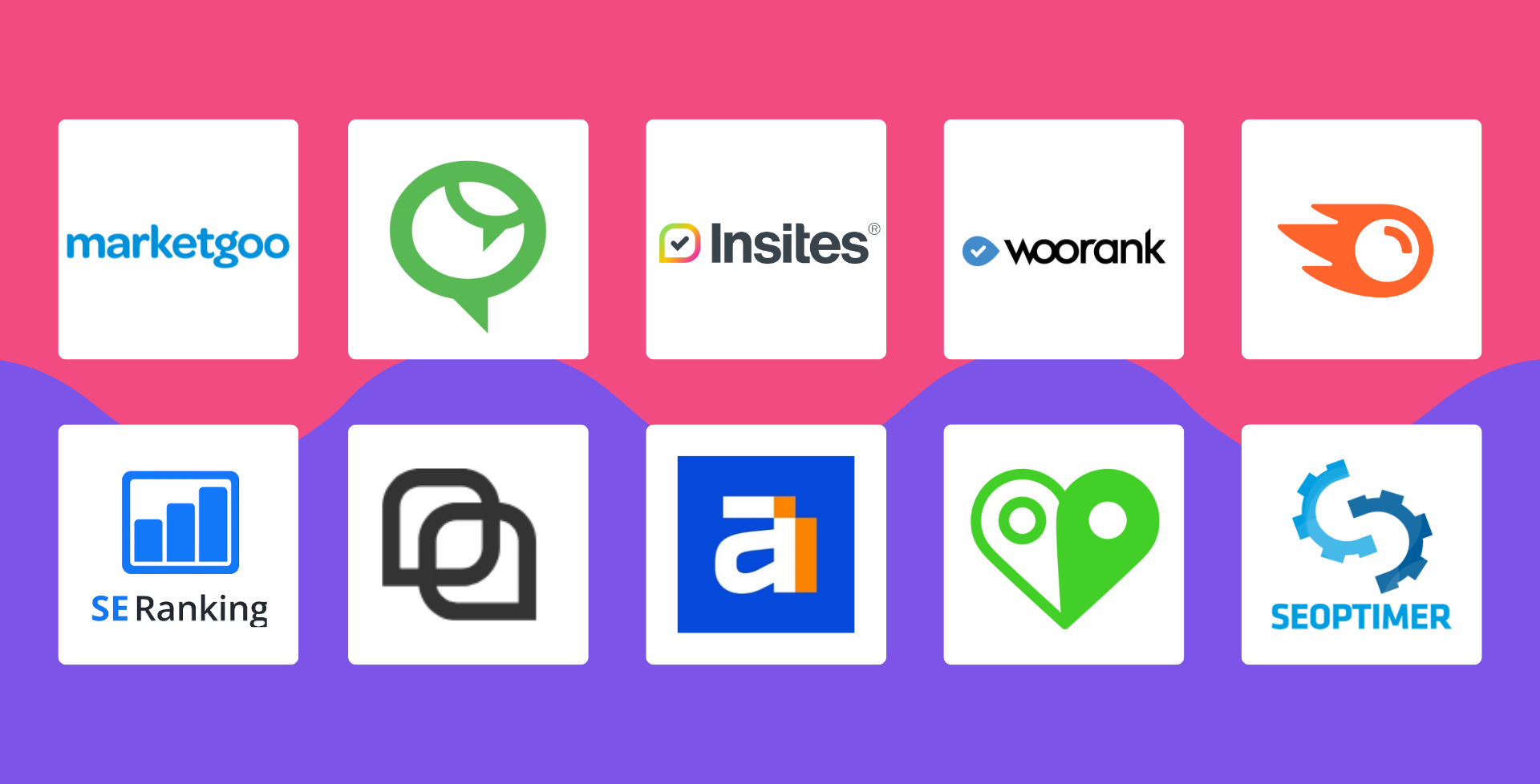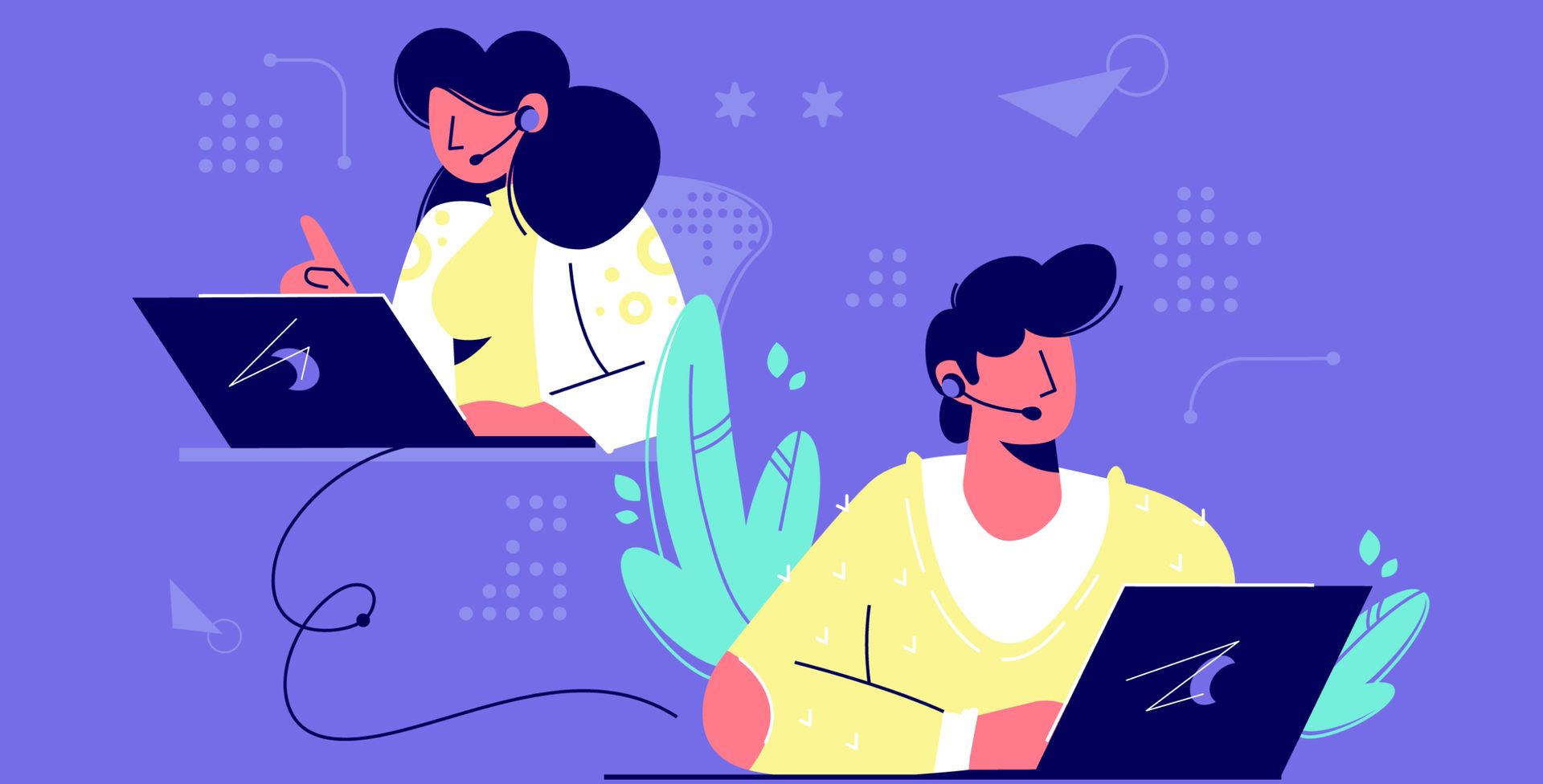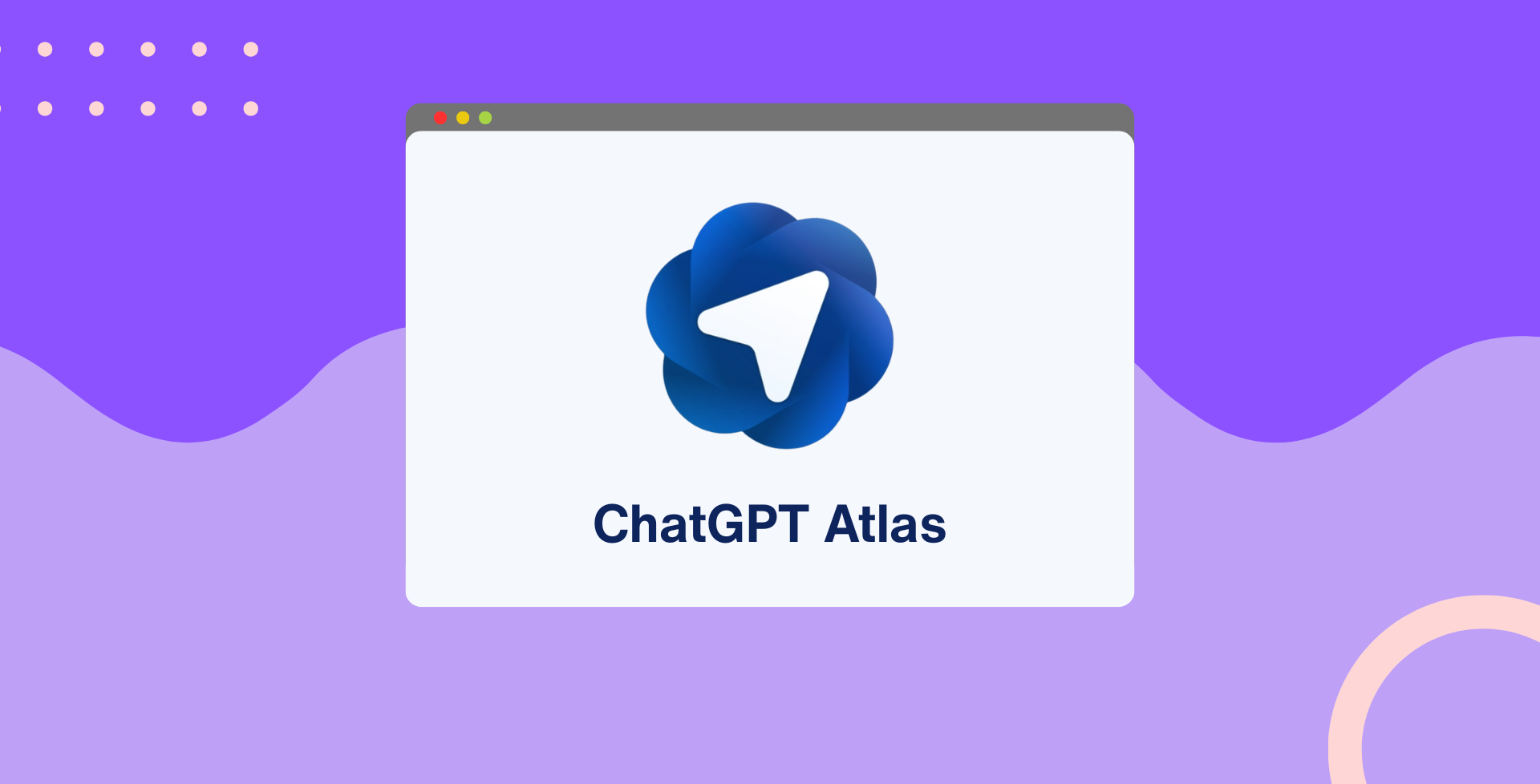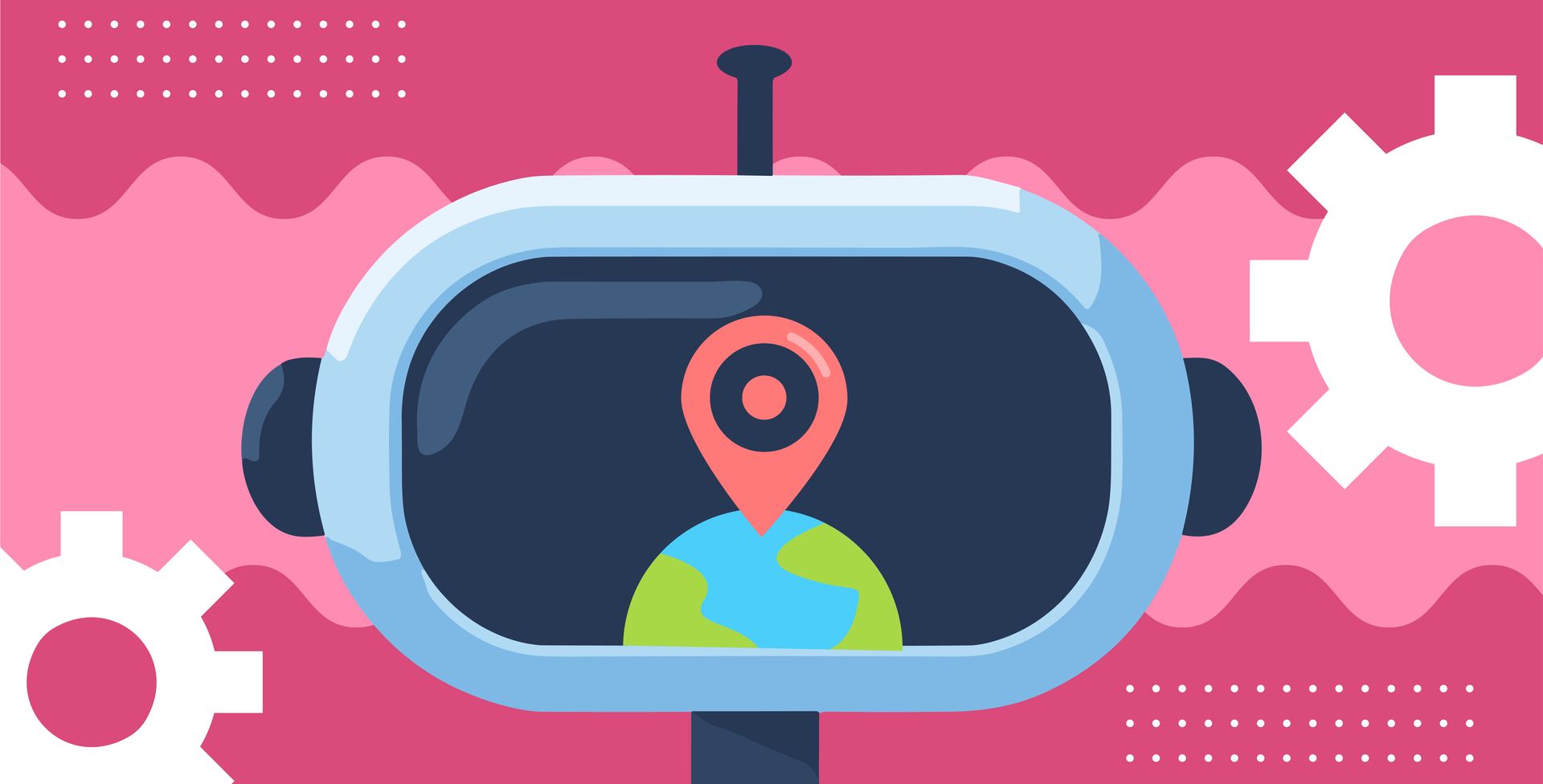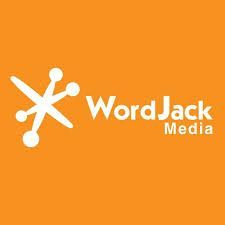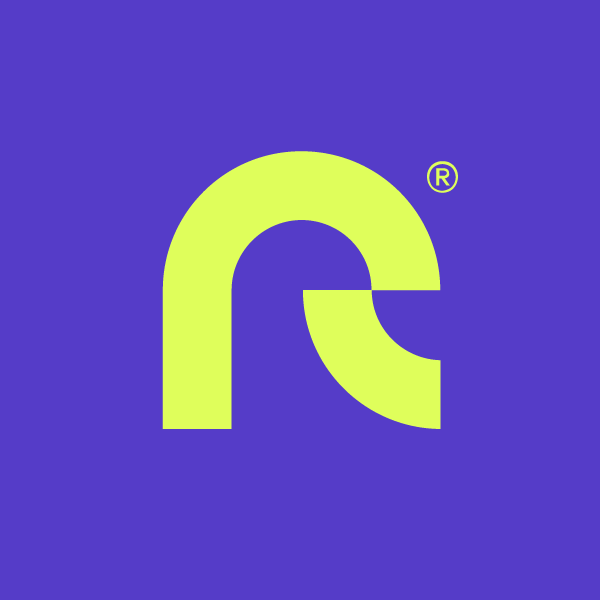How to audit your SMB clients SEO ranking and AI search visibility
Izzy Fletcher • August 7, 2025
New BrightEdge research shows that ChatGPT and Google are now giving wildly different responses to the same searches, with healthcare hit the hardest (a 62% divergence rate).
So while you're still optimising for Google, your clients' potential customers are getting sent to your competitors via ChatGPT.
Essentially, ChatGPT has turned into that friend who cuts straight to the point and tells you exactly what to do, while Google's still like a helpful librarian giving you multiple recommendations.
The citation game has completely changed
Here's where it gets interesting (and terrifying). ChatGPT loves mentioning brands but hates linking to them. Only 2 out of 10 brand mentions get an actual link. So your client might be getting mentioned, but they're not getting the traffic.
Perplexity is one extreme of the LLM spectrum and goes full academic mode with over 5 citations per answer, but only mentions brands 1 in 5 times.
Whereas Google AI Overviews tries to split the difference, however, despite impressions being up 49% since AI Overviews launched, click-through rates dropped nearly 30%.
The hardest hit industries
If you’re selling to digital marketing to local dentists, schools or accountants, you’ll be interested to know they’ve been hit the hardest with search results varying between Google and AI.
- Healthcare: 62% divergence
- B2B tech: 47% divergence
- Education: 45% divergence
- Finance: 39% divergence (even the "good" news is bad news)
Healthcare got hit hardest with that 62% divergence rate, but why is really matters is because 18.4% of ChatGPT users already use it for health queries. When patients search for specialists, ChatGPT isn't sending them to doctors’ landing pages like Google does. It's giving them straight-up answers and then pushing them straight to Zocdoc, Healthgrades, and insurance directories.
This same pattern is demolishing other industries too. Local accountants are getting bypassed for TurboTax recommendations, and personal trainers are losing out to fitness app suggestions. It’s easy to start hating on AI and thinking it’s anti-local business, but the truth is it’s just pro-efficiency and cutting out the middleman (your clients).
The trick to balancing good SEO and AIO
All that keyword research and content optimisation you're doing is still important, but it's only solving half the problem now. You need to start thinking like two different search engines because that's literally what you're dealing with.
Featured snippets are more likely to trigger AI Overviews, so your traditional SEO game still matters for Google. But ChatGPT doesn't care about your keyword density or meta descriptions. It cares about finding the fastest path from question to action.
Your local restaurant client needs both "Best Italian Food in Downtown" content (for Google's browsing crowd) AND seamless integration with OpenTable, DoorDash, and Uber Eats (for ChatGPT's "just book it" users). One strategy won't cut it anymore.
What to do right now to stay ahead & impress your clients
1. Audit where your clients actually show up in AI responses. If you're currently using Insites to audit your small-medium business, we have AI readiness checks enabled in the platform. That's your opening - show them their AI invisibility, and suddenly you've got their attention.
If you’ve not yet using Insites, use our free AIO readiness checker on a client to see how they’re showing up in AI like ChatGPT and Gemini (if at all).
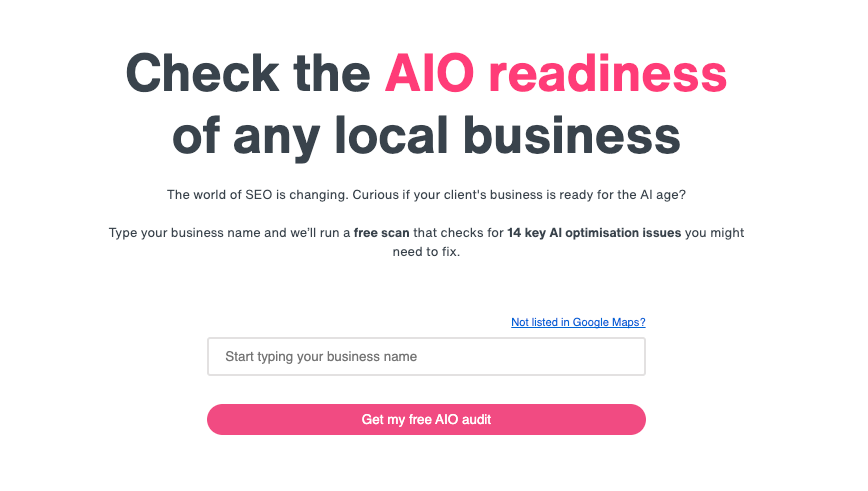
2. Get them visible on every relevant third-party platform in their industry. ChatGPT loves pulling from aggregators, so your healthcare clients better have killer profiles on Zocdoc and Healthgrades. Your home service clients need to dominate Checkatrade and HomeAdvisor. This isn't optional anymore.
3. Create content that works for both worlds. Every blog post needs a twin - one for Google's "let me research this" crowd and one for ChatGPT's "just tell me what to do" users. Find ways to maximise your content that speaks to both search models. With subtle tweaks, it won’t take much more effort, and these results are game-changing.
4. Start monitoring AI mentions like your business depends on it (because it does). Brand sentiment can shift overnight in AI responses. The digital marketing providers offering real-time AI dashboards are the ones keeping clients happy and engaged.
5. Position this as business-critical, not experimental. AI search isn't replacing traditional search - it's expanding it. That 49% increase in search impressions? That's a new opportunity, not competition. Frame it right and your clients will see AI optimisation as growth, not protection.
Ready to see where your clients actually rank in AI search? Get a free AI visibility check for any business to see if they're showing up in ChatGPT, AI Overviews, and Gemini.
This is just one of the comprehensive checks included in Insites audits - if you want to know more about getting ahead of this AI search revolution and selling digital marketing at scale, book a call with our team.

